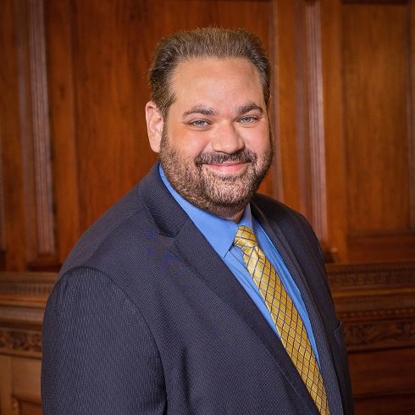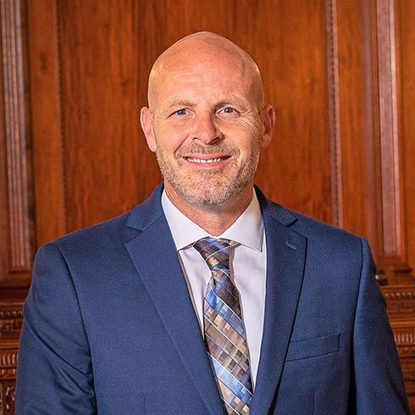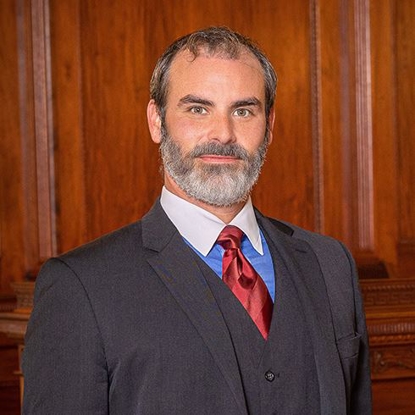
Central Illinois Title IX Investigation Attorneys
Have You Been Accused of a Sex Offense on a College Campus?
The law calls for a Title IX investigation to begin as soon as an accusation of sexual misconduct comes forward. Your ability to stay in school and earn your degree are at risk if you are the subject of this investigation. In these situations, it is of the utmost importance that you learn your rights and have an experienced Central Illinois Title IX lawyer looking out for your best interests.
If you have been accused of a sexual offense on a college campus, contact our knowledgeable Title IX investigation lawyers in Central Illinois at (309) 565-8825today. We offer free initial consultations.
What Is Title IX?
"Title IX" is the section of the 1972 Education Amendments to federal civil rights law, which prohibits discrimination based on gender in educational programs or activities that receive federal funding. Under the law, sexual assault and sexual harassment can qualify as "discrimination" under the statute. In other words, it's a well-intended federal law that schools are required to follow in order to make sure that people are not discriminated against. For example, one student alleges that another student sexually assaulted him or her on a university campus. The university must now make the alleged perpetrator subject to a Title IX investigation and inevitable hearing.
What You Should Know about Title IX
If your school receives funds from the United States Department of Education, then it is required to adhere to the Title IX guidelines outlined in the Education Amendments Act, which creates protections to keep campuses free of sexual discrimination. This law allows students to take the initiative and call for a Title IX investigation without faculty approval.
If you are under investigation for Title IX, you have the following rights:
- The right to have your case heard according to regular procedure
- The right to receive notice of the charges
- The right to hear a description of the evidence
- The right to present your side of the story during an impartial hearing
While many schools are required to adhere to Title IX guidelines, they do have the right to set their own rules for details that were not specified in the Education Amendments Act. You and your attorney will need to grow familiar with your school’s specific guidelines in order to prepare an effective defense.
The Danger of Title IX
Schools, particularly universities, receive direct federal funding, and, unfortunately, there is little direction given to schools on how Title IX is to be applied. Generally, guidance is available, but the procedure at a hearing, how a hearing is conducted, and so on, can change between colleges and universities. This means that students who are subject of a Title IX action face serious deprivations of their fundamental procedural constitutional rights.
Most people do not realize it, but most Title IX investigations and hearings for which a person would need a lawyer start with a complaint to police. Oftentimes, the accuser goes to campus police, and the police, in turn, report the accusation to school administration. While police investigate the possible crime, the Title IX allegations are investigated, and often result in a hearing. This matters because fighting against being charged criminally and fighting for your degree are two different matters, and anyone accused needs to have an attorney who can fight on both fronts.
For example, a person can have an attorney present, but that attorney cannot ask questions. To make matters worse, there are requirements under Title IX to make hearings more fair to the accused, such as that he or she must be allowed to see the allegations against him or her, but there is little to no mechanism for recourse (other than a federal lawsuit) when schools violate Title IX—and they violate it all the time. In addition, it is easy for someone accused to be found in violation because the standard (or burden of proof) by which an allegation must be proven is only by a preponderance of the evidence—the lowest civil standard in the State of Illinois.
The System Is Unfair
First, the standard of proof for an accuser is only by a preponderance of the evidence, which is the lowest civil burden in the State of Illinois. Secondly, we live in a cultural and political climate in which no one believes the accused, and all too often believes the accuser. Students who face or have had a Title IX hearing often face serious personal consequences from being outcast to physical attack simply because they were accused. This is true regardless of the outcome and, if found in violation, regardless of punishment.
Thirdly, people accused are often denied their fundamental rights, such as to see the reports against them, despite the lip service many colleges and universities pay to protecting these rights. Fourthly, people need a lawyer to represent them, but colleges and universities prohibit that lawyer from asking questions of witnesses, which requires the lawyer to do a significant amount of preparation with his or her client before the hearing.
Fifthly, colleges and universities impose no punishment when accusations are proven to be false. When an accuser makes an allegation, seeks to have another student expelled, and is proven to be a liar, higher education does not, in turn, do the correct thing, expelling that lying accuser. To add insult to injury, they take no action to protect those accused from reprisals either before or after a hearing. Last, but not least, it is possible for police to gather evidence at a Title IX hearing that is later used in the criminal prosecution of someone.
What Can Happen After a Title IX hearing?
After a hearing held under Title IX, the allegations could be unfounded, akin to a not guilty verdict, and there is no punishment at the university level. (Punishment at a personal level, threats or harassment from fellow students, online or in-person intimidation, and so on is another matter altogether that forces even those whose allegations were groundless to drop out or enroll elsewhere.) Frequently, if the allegations after a Title IX hearing are founded what will happen is some university discipline, whether it be probation, suspension, or expulsion.
Why Do People Need Help With Their Title IX Hearing?
There are several reasons why people who are accused of something need help. First, as was discussed above, people are frequently denied their fundamental rights at hearings, and knowing how to navigate an unfair system can be impossible if you are unfamiliar with that system.
Secondly, our political and cultural climate too often weighs heavily in the minds of those deciding what will happen at a Title IX hearing. There is no presumption of innocence, such as there would be in a criminal case, at Title IX hearings, and, if anything, thanks to our current political and cultural climate on college and university campuses, there is a presumption of guilt. Thirdly, most hearings will be lost without a strategy, and planning to simply deny any allegations is not a strategy. It will only turn a case into a he said-she said, and, thanks to what was discussed above, this will likely result in some university discipline.
Finally, anyone accused and facing a Title IX hearing has to protect his or her freedom, because many times allegations will be made to police first. This means what is said, what is produced, and what the outcome of a hearing is can all affect whether a person is or is not charged, much less whether a charge is or is not beatable at trial.
A Legal Team You Can Count On
Things can get bad quickly when you are accused of a sexual offense, but this is no time to give up. These are sensitive cases where people’s reputations and futures are on the line. They are not to be taken lightly and you deserve to have someone on your side who will fight for your rights.
Our experienced team of Title IX investigation attorneys can gather the evidence needed to build your defense and serve as your representative with university staff. You don’t have to go through this alone.
For more information about Title IX investigations and our firm, call (309) 565-8825to request a free consultation with a member of our team.


See Our Track Record of Success
-
All Charges Dismissed A. vs A.L.
-
Aggravated DUI
-
Probation Another Probation Sentence After a Felony DUI Arrest for Someone on Probation for Two Felonies Already
-
Class X Drug Case with No Jail!
-
Conditional Discharge with No Jail Conditional Discharge with No Jail After Pointing Gun at Children






